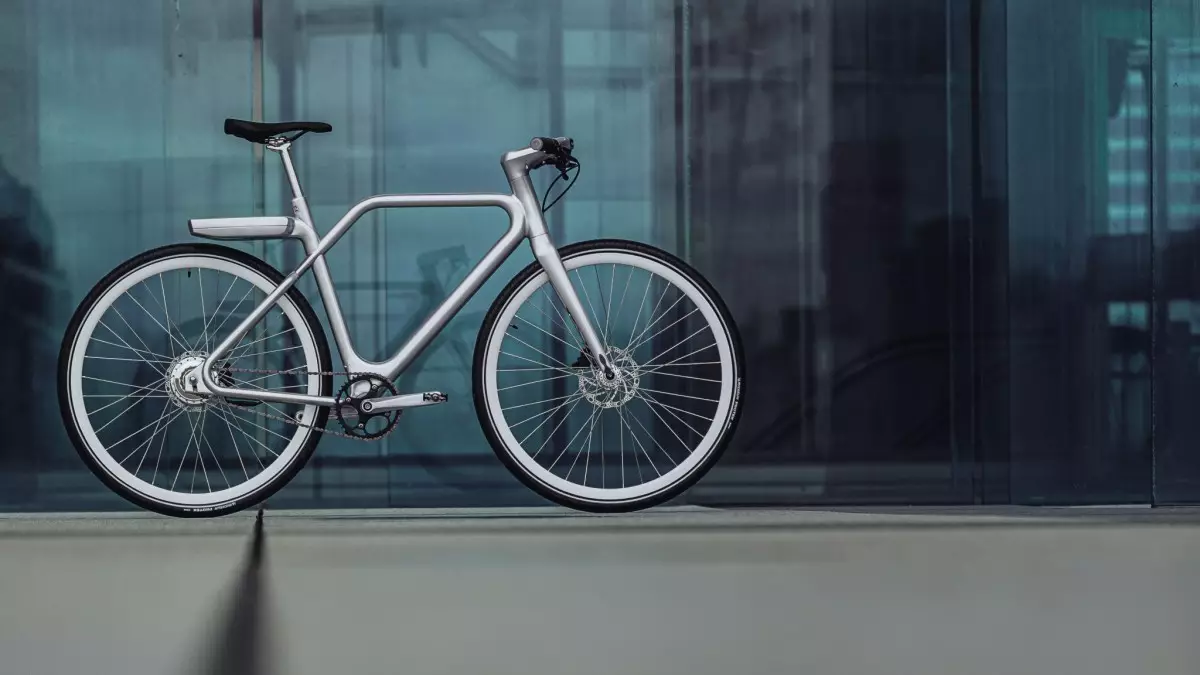The electric bicycle market has witnessed remarkable growth in recent years, as urban commuters and environmentally conscious consumers turn towards sustainable modes of transport. Among the frontrunners in this arena was Angell, a French startup that promised to revolutionize cycling through its innovative smart electric bikes. Founded in 2019, the company aimed to cater to tech-savvy users interested in enhanced biking experiences. However, mere years after its inception, Angell has declared insolvency, marking a significant setback in the electric mobility landscape.
Angell’s mission was ambitious: to produce an electric bike that combined practicality with cutting-edge technology. The bike featured a small color touch screen embedded in the handlebars, providing riders with essential information such as speed, navigation, and connectivity through Bluetooth. Furthermore, it boasted an integrated lock, alarm system, GPS, and cellular modem, positioning itself in a competitive market dominated by European brands like Cowboy and VanMoof.
Despite its technological promise, the road to success proved to be treacherous. Angell faced substantial reliability challenges, which ultimately became its downfall. While the integration of such advanced features was commendable, it may have inadvertently contributed to the bike’s fragility, highlighting the intricate balance between technology and durability in product design.
The Pivotal Moment: From Innovation to Insolvency
The tipping point arrived when Angell’s first-generation bike demonstrated severe structural concerns, specifically relating to the frame’s welding process. Company co-founder and CEO, Marc Simoncini, candidly acknowledged the issue’s impact on the brand’s sustainability. In his social media message, he indicated that despite relentless efforts from the team, the combination of hardware complications and manufacturing flaws had rendered the company’s vision unviable.
Rather than executing a customer recall or reimbursements, which would have necessitated a significant financial outlay, Angell opted for judicial liquidation. This decision not only reflects the harsh realities of startup life but also serves as a stark reminder of the financial forces that can quickly upend even the most promising enterprises.
Angell’s partnership with SEB, a well-known French industrial giant responsible for manufacturing, raises crucial questions about accountability in product design and execution. The company attempted to shift some of the blame for the bike’s structural issues to SEB and its design partner, Kickmaker. Nevertheless, the end-responsibility ultimately lies with Angell, as it is the entity that marketed, sold, and profited from these faulty bikes.
This predicament illustrates the complexities of outsourcing manufacturing and design responsibilities, where startups must juggle innovation and quality control without the deep resources of established companies. Furthermore, such scenarios highlight the risks faced by consumers when new products enter the marketplace without thorough vetting and quality assurance processes.
For Angell’s customers, the insolvency announcement has left many feeling stranded, especially those who invested in the first-generation bikes. The unresolved safety issues pose a significant risk to riders, leading to customers questioning the integrity of their purchases. Furthermore, the potential discontinuation of server operations raises concerns about the continued functionality of essential smart features, such as electric assistance and the smart lock system.
The emotional and financial toll on consumers cannot be understated. Cycling enthusiasts who sought out Angell’s products now face the reality of owning an unsafe bike that may soon become entirely inoperable. This serves as a sobering lesson about the volatility of the tech-driven consumer market, where excitement for innovation can quickly turn to disappointment when the promise of cutting-edge products falls short of consumer expectations.
The story of Angell is a cautionary tale for future innovators in the electric mobility space. While the ambition to integrate technology with everyday products is commendable, it is paramount to prioritize quality and reliability in product design. Moreover, this failure emphasizes the need for comprehensive oversight and validation in partnerships with manufacturing and design entities. As the electric bike industry continues to evolve, the lessons learned from Angell’s demise should resonate with entrepreneurs and consumers alike, ensuring that the dreams of innovation do not eclipse the necessity for a robust and durable product.

